Discussion will include changes in structure and content scope, status of adoption among jurisdictions, preparing students and graduates in anticipation of the new exam, advocating for adoption (or not) in your jurisdiction, and alternatives being explored in those jurisdictions not choosing to adopt.
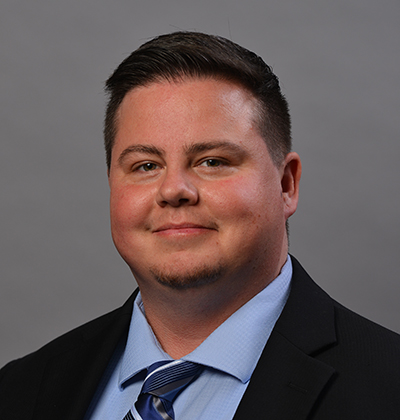
Dean Cavanaugh joined St. Mary’s School of Law in January 2017 as a Law Success Instructor. He served as Director of Law Success from June 2019-May 2021. Since June 2021, he has served as the Assistant Dean of Law Success. He focuses on academic support, legal education, legal research and writing, and bar preparation. He works closely with the bar prep team and bar examinees to help them as they study for and take the bar exam.
As Assistant Dean of Law Success, Dean Cavanaugh also works closely with the law school’s Director of Assessment and Statistics to guide the Law Success team in taking an innovative, data-driven approach to student growth by using the data-gathered to plan legal skills development, bar exam initiatives, and individual academic counseling. Dean Cavanaugh has served as a board member for the AALS Section on Academic Support and the Association of Academic Support Educators (AASE), and continues to serve AASE as the chair of several committees.
Dean Cavanaugh graduated magna cum laude from St. Mary’s School of Law and went on to practice property, estate planning, probate, and business law for a few years before joining St. Mary’s as an instructor. Besides his law career, Afton is a dedicated community advocate. He has served on the Board of Directors for the Ending Community Homelessness Coalition (ECHO), a non-profit organization that aligns resources for community stakeholders to utilize in combating homelessness. He also served on the Board of Directors for the Council on At-Risk Youth and the board for the Austin Gay and Lesbian Chamber of Commerce.
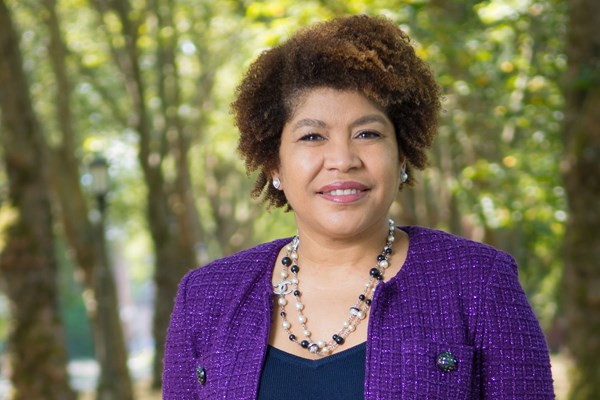
Tamara F. Lawson is the Toni Rembe Dean and Professor of Law at the University of Washington School of Law in Seattle. Dean Lawson previously served in the roles of Dean, Associate Dean for Academic Affairs, Associate Dean for Faculty Development, and Professor of Law, at St. Thomas University College of Law in Miami. She was the founding dean of the Benjamin L. Crump Center for Social Justice. Dean Lawson holds several leadership appointments in the legal community: Association of American Law Schools Deans’ Steering Committee, Law School Admissions Council Board of Trustee, Society of American Law Teachers’ Board of Governors, National Bar Association’s Board of Governors and Chair of the NBA’s Law Professors’ Division. Dean Lawson has previously served as the Chair of three different AALS Sections: Women-in-Legal Education, Evidence Law, and Law and Humanities. She currently serves as the Chair of the Budget and Finance Committee for LSAC’s Board, and the Chair of the Committee on the Regulation of Legal Education for SALT’s Board. Dean Lawson is regularly invited to speak on issues of criminal justice and race, educating student and practitioner audiences, both domestically and internationally.
Prior to joining the legal academy, Dean Lawson served as a Deputy District Attorney at the Clark County District Attorney’s Office in Las Vegas, Nevada. Among other prosecutorial duties, she worked on the Special Victims Unit for Domestic Violence, as well as successfully argued multiple cases before the Nevada Supreme Court, including death penalty appeals.
As a faculty member, Dean Lawson was twice awarded Professor of the Year. As a scholar, her publications include a lead article in the American Journal of Criminal Law, entitled, Can Fingerprints Lie?, two co-authored casebooks, and an invited book chapter in CONTEMPORARY CONTROVERSIES: FORENSIC TECHNOLOGY. Dean Lawson’s research has appeared in prestigious law journals. Her article A Fresh Cut in an Old Wound – A Critical Analysis of the Trayvon Martin Killing: The Public Outcry, the Prosecutors’ Discretion, and The Stand Your Ground Law garnered Dean Lawson media appearances as a legal expert, and she was selected as the Reporter for the American Bar Association’s National Task Force on Stand Your Ground Laws. Her timely research on excessive force cases is published in Powerless Against Police Brutality: A Felon’s Story and in Awakening the American Jury: Did the Killing of George Floyd Alter Juror Deliberations Forever?
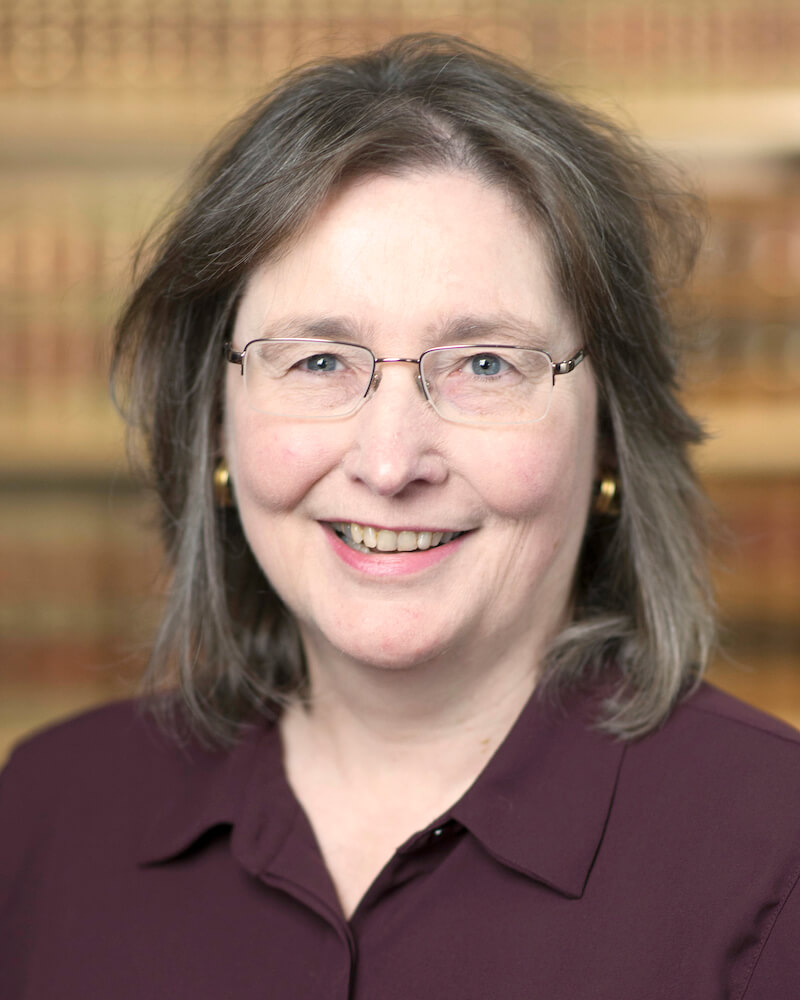
Professor Deborah Jones Merritt graduated from Harvard College summa cum laude in 1977 and from Columbia Law School in 1980. While at Columbia, she was managing editor of the Columbia Law Review and won the Robert Noxon Toppan Prize.
After graduation, Professor Merritt clerked for Judge (now Justice) Ruth Bader Ginsburg on the Court of Appeals for the District of Columbia Circuit and for Justice Sandra Day O’Connor on the Supreme Court of the United States.
Professor Merritt practiced law in Atlanta and joined the law faculty at the University of Illinois in 1985. She served there as professor of law, professor of women’s studies, advisor to the Joint JD/MD Program, and associate dean for academic affairs before moving to Ohio State, where she accepted the Drinko Chair in 1995.
Professor Merritt has published widely on issues of equality, affirmative action, federalism, health and technology, legal education, tort reform, and law and social science. Much of her work has focused on public policy issues, and she has made numerous presentations to judges, legislators, and other policymakers. In 2009, the United States Supreme Court invited her to defend the lower-court judgment in Reed Elsevier v. Muchnick, a prominent copyright class action. Professor Merritt also has co-taught courses in Europe with both Justice Ginsburg and Justice O’Connor.
In December 2008, Professor Merritt and her Moritz colleague Professor Ric Simmons published Learning Evidence: From the Federal Rules to the Courtroom, a text that offers a new pedagogy for teaching the basic Evidence course. A comprehensive teacher’s manual and website, www.merrittevidence.com, complement the book. The book is now in its fourth edition, and West has created a full series, the Learning Series, based on the Merritt and Simmons model.
Professor Merritt has been honored as an Ohio State University Distinguished Lecturer (1999), University Distinguished Scholar (2002), and Distinguished Teacher (2009). She has also won university-wide awards for Distinguished Diversity Enhancement (2004) and Distinguished Faculty Service (2013). In addition, she served as the university’s general commencement speaker for the Autumn 2004 commencement. In 2019, the Board of Trustees capped these awards by naming her a Distinguished University Professor.
From 2017—2019, Professor Merritt served on the ABA’s Commission on the Future of Legal Education. Her current research focuses on identifying the knowledge and skills that new lawyers need to serve clients effectively in practice, as well as on the pedagogies and workplace structures needed to develop that competence. She is the co-principal investigator on a nationwide empirical study of new lawyers’ work, Building a Better Bar.
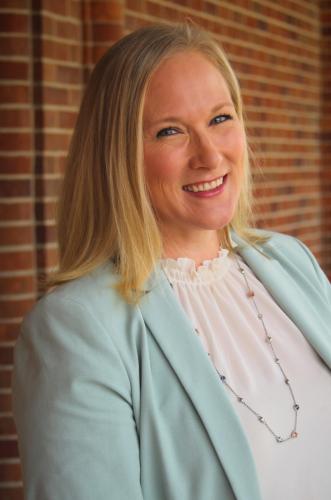
Laura Wilcoxon in the Reference and Student Services Librarian at the University of Missouri School of Law. In her current position, Laura aims to connect law students with the library resources best suited to meet their needs. She currently serves on the law school’s Academic Success and Bar Support as well as the Student Experience committees. Laura graduated from the University of Miami School of Law in May 2021 where she was a HOPE Public Interest Scholar.
Prior to attending law school, Laura served as an urban public school librarian in Kansas City, Kansas, and Colorado Springs. She was awarded her district’s “Librarian of the Quarter” award for her use of technology and outreach into classrooms. Laura has a Master of Library Science, a Master of Science in Education in Curriculum and Instruction, and a Bachelor of Science in Education in Secondary English Education.
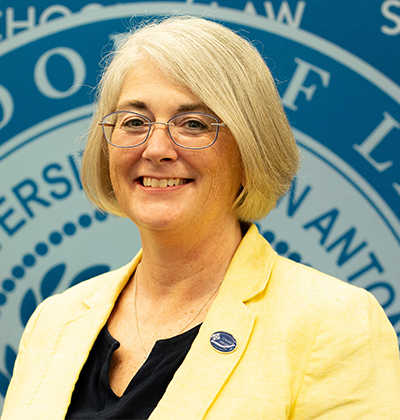
Roberts became the tenth dean of St. Mary’s School of Law on June 1, 2020. A legal educator for two decades, the majority of her career has been spent in clinical teaching, supervising law students in providing assistance to underserved members of the community. She is in her fourth year as dean, and is a Marianist Educational Associate.
Roberts’ initial term as dean included the Law School’s creation of the first entirely online J.D. program accredited by the American Bar Association, increased applications and financial aid awarded to entering classes, improvements in LSAT and GPA medians, advocacy team ranking of 12th in the nation, higher graduate employment, and hosting of the inaugural Lawtina Network Summit to increase the presence of, and support for, Latinas in the legal profession. The last three years also included creation of a First Generation Bootcamp for entering students, an intensive clerkship preparation program, and student Mentor Circles with members of the bench and bar. The Law School’s five-year Strategic Plan was also adopted in anticipation of its Centennial in 2027, and significant funds are being raised to support its future.
Roberts earned her Bachelor of Arts degree from Randolph-Macon Woman’s College in Lynchburg, Virginia, with a double major in Biology and Psychology. She practiced law for eight years as a solo practitioner and later as a managing partner of a civil practice law firm after earning her law degree from William & Mary.
She returned to William & Mary in 2000 and held numerous administrative roles until her appointment to the clinical faculty in 2008 as Director of Clinical Programs. In 2017, after holding numerous administrative and academic positions, she was named Vice Dean, a position she left to become the Dean at St. Mary’s.
As Vice Dean, Roberts was William & Mary Law’s chief academic officer, responsible for academic programs and policies that are essential to an excellent legal education. She simultaneously served as the Director of Clinical Programs, overseeing a center and nine legal clinics that provided pro bono representation to underserved clients in Virginia’s Hampton Roads area. The school’s first in-house clinics, including those specializing in veterans’ benefits, elder law, special education, appellate and Supreme Court litigation, and a center for coastal policy, were created during her tenure as director. She also helped create the Institute for Special Education Advocacy, an intensive one-week program to train attorneys and advocates to maximize their effectiveness. A similar program has now been created at St. Mary’s, the Special Education Advocacy Summit.
Roberts has been a nationwide leader in legal efforts to aid veterans. She was the inaugural President of the Board of Directors of the National Law School Veterans Clinic Consortium and creator of Military Mondays, a program that began at William & Mary Law School and served as a model for providing advice and counsel to veterans in numerous Starbucks locations across the country. She was a regular speaker on issues related to veterans’ law and access to justice nationwide.
Roberts is the host of the Aspen Leading Edge, and was the founding host of EdUp Legal, both podcasts about legal education and its future.